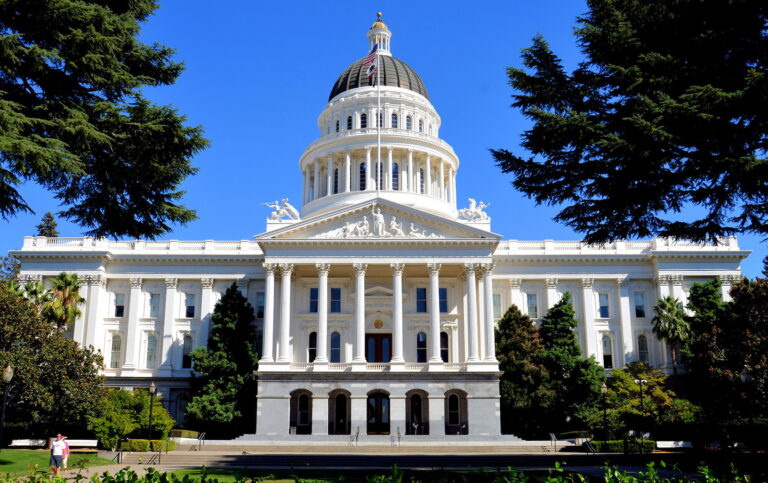Feb. 15, 2021 – The Maryland House and Senate voted last week to override Gov. Larry Hogan’s May 2020 veto and enact the nation’s first tax on digital advertising, a move that other states are in the process of considering in light of a backlash against big tech companies and significant budget shortfalls as the COVID-19 pandemic continues.
“This bill is not likely to affect your business in the near term: Its construction is vague and unclear, and its implementation is likely to be delayed by legal challenges,” Coalition for Healthcare Communication Executive Director Jon Bigelow wrote in a memo to industry leaders. “Yet it is the furthest advance in a movement growing in several states, intended both to suppress the volume of targeted digital advertising and to find a new revenue source for states buffeted by large budget deficits related to the COVID-19 pandemic.”
The Maryland legislation was passed by the Democratic-controlled Maryland legislature in March 2020, with the revenue intended to fund public school reforms; the Maryland Department of Legislative Services estimates it may raise $250 million per year. As the COVID-19 pandemic and recession intensified in May, this legislation and three other bills were vetoed by Hogan, a Republican, who warned that “these misguided bills would raise taxes and fees on Marylanders at a time when many are already out of work and financially struggling.”
The legislature had already adjourned after a pandemic-shortened session, delaying an override vote until it reconvened in January 2021. The override was passed by the Maryland House on Feb. 11 and by the Maryland Senate on Feb. 12.
HB 732 imposes a tax on “digital advertising services,” including banner advertising, search engine advertising, interstitial advertising, and similar advertising on websites or any type of software. The tax begins at 2.5 percent and scales up to 10 percent. However, according to Bigelow, “it is unclear how it would be calculated and who would pay it.”
As initially proposed, the tax would have been assessed on digital advertisements served to IP addresses that could be linked to a Maryland resident — but many critics pointed out that this raised privacy issues, he explained. The bill was then revised to call for calculating an “apportionment fraction” with the annual gross revenues that an entity derived in Maryland constituting the numerator, and annual gross revenues that entity derived across the U.S. serving as the denominator. The Maryland Comptroller would develop regulations to address how to determine from which state the revenues from digital advertising services are derived.
“If all of this is not immediately clear to you, don’t worry — judging from online commentary it’s not clear to a variety of prominent law firms, either,” Bigelow remarked.
“Nor is it evident exactly who pays the tax. The law says it will apply to entities with a threshold of $100 million in annual gross revenues globally and a threshold of $1 million in digital spend within Maryland,” he continued. “But how does a company discern which part of their overall digital spend is actually in Maryland? And in an ecosystem where an advertiser, a media buyer, perhaps a programmatic service, and a digital platform are all involved in the ‘digital advertising services,’ it may not even be clear to which entity the thresholds apply or whether (and how) the tax would be divided among the entities,” he said.
The bill’s supporters say it would affect big tech companies like Google and Facebook, but opponents say it will affect smaller businesses as well. There are reports that a separate bill now may be introduced to stipulate that extra costs from HB 732 are not to be borne by businesses that buy ads, but the wording and likelihood of passage are uncertain.
Bigelow said to expect implementation of HB 732 to be delayed by legal challenges at both the state and federal level raising several issues. For example, he explained, this tax:
- Singles out digital advertising but not advertising in print or other media (potentially violating federal regulations and the Permanent Internet Tax Freedom Act);
- Focuses on the content of speech (potentially violating the First Amendment);
- Imposes burdens on interstate commerce (breaching the Commerce Clause);
- Imposes levies on an intermediate service rather than retail consumption (contrary to longtime legal tradition); and
- Represents “double dipping,” because in Maryland both the advertising and the retail sale would be taxed.
The Maryland Attorney General’s office has acknowledged that lawsuits on these various issues would have a substantial chance of overturning the law. Dan Jaffe, executive vice president and head of government relations at the Association of National Advertisers, wrote in a Feb. 9 blog post that these legal questions likely will impair the outcome Maryland legislators are seeking.
“Rather than generating more revenue for the state, HB 732 would only assure that Maryland and the business community will be forced to expend large amounts litigating this misguided proposal,” according to Jaffe. “In addition, advertising taxes slow job growth (especially for small businesses…), dampen consumer demand, discourage business investment, and ultimately cause consumers to pay more for products and services.”
Bigelow predicted that implementation of the newly-enacted digital advertising tax “is unlikely anytime soon, and it remains to be seen whether the law will survive legal challenges and if so, how it would be interpreted and how it would affect pharma marketing.”
However, he noted, “the broader question of a tax on digital advertising remains alive and may get an assist from the severe fiscal plight in which many states now find themselves. The New York legislature is considering two bills; one (SB 1124) is very similar to the Maryland legislation and another (SB 8166) would extend the state sales tax to cover digital advertising services.”
Digital advertising tax proposals with various approaches also have been introduced in Connecticut, the District of Columbia, Indiana and Nebraska. A Feb. 11 Axios article notes that “states across the U.S., unwilling to wait for the slower gears of the federal government to turn, are moving aggressively to regulate the tech industry.”




